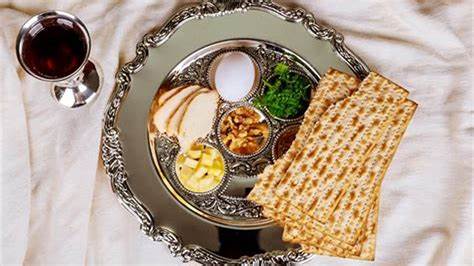Passover begins at sundown on Friday, April 5th, and end at nightfall on Saturday, April 13th. Passover is observed with various rituals, prayers, and meals, emphasizing themes of freedom, redemption, and gratitude for deliverance. Passover typically lasts for eight days, with the first two days and last two days being the most significant in terms of religious observance.
Passover, also known as Pesach in Hebrew, is primarily celebrated by Jewish people around the world. It is one of the most important holidays in Judaism, commemorating the liberation of the Israelites from slavery in ancient Egypt, as described in the Hebrew Bible (the Exodus story).
Jewish communities, regardless of denomination or sect, typically observe Passover with various rituals and traditions, including the Seder meal, which is a special ceremonial dinner held on the first two nights of Passover in most Jewish households. During the Seder, participants retell the story of the Exodus, eat symbolic foods, and recite prayers and blessings.
In addition to Jewish communities, some non-Jewish individuals and organizations may also choose to participate in Passover celebrations or learn about its significance as a way to promote interfaith understanding or cultural appreciation.
In terms of Passover observance, the most significant days are:
- First Day of Passover (Pesach I): This marks the beginning of the Passover holiday. It is celebrated with a special festive meal called the Seder, during which the story of the Exodus from Egypt is retold, and symbolic foods are eaten.
- Second Day of Passover (Pesach II): In many Jewish communities outside of Israel, Passover is observed for eight days, with the first two days (Pesach I and Pesach II) and the last two days (Pesach VII and Pesach VIII) being considered full-fledged holidays. This is a continuation of the celebration, often marked with additional festive meals and observances.
- Seventh Day of Passover (Pesach VII): This marks the crossing of the Red Sea by the Israelites, a significant event in the Exodus narrative. It is also celebrated with festive meals and specific prayers.
- Eighth Day of Passover (Pesach VIII): This is the final day of Passover outside of Israel. It is also celebrated with special prayers and festive meals.
The closing of Passover is often a more subdued affair compared to the Seder nights. Jewish families may have a final meal that includes some of the traditional Passover foods, but there are typically no specific rituals or ceremonies associated with the conclusion of the holiday. Instead, it’s a time for reflection on the themes of freedom, redemption, and renewal that Passover represents.

Be the first to comment on "The observance of the Passover holiday, a time for freedom, redemption, and renewal."